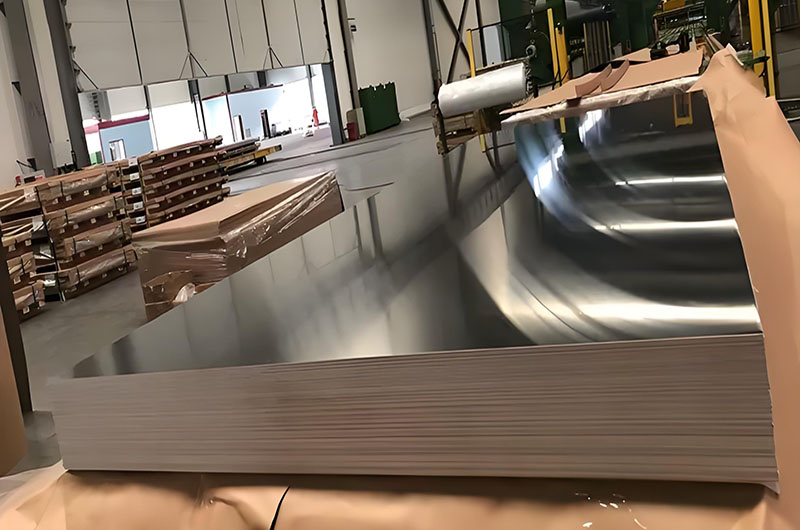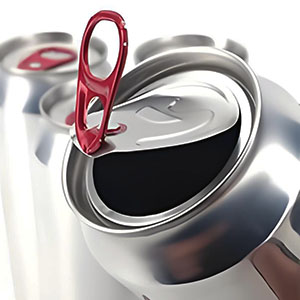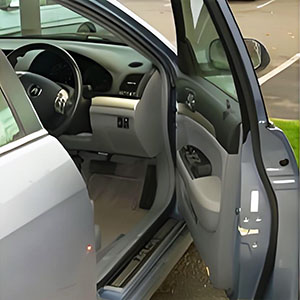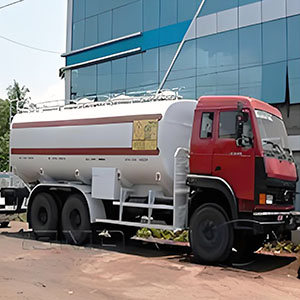

5182 aluminum plate is a forging alloy primarily composed of aluminum (95.2%), magnesium (4.5%), and manganese (0.3%). This composition gives the material various remarkable properties, making it suitable for a wide range of applications.
5182 is one of the strongest non-heat-treated aluminum alloys. It is mainly used in the automotive industry but is also a major alloy for producing beverage cans, as well as electrical and computer components. 5182 aluminum coil is particularly used in can manufacturing.
One notable feature of 5182 aluminum alloy is its high magnesium content, which provides excellent corrosion resistance and weldability.

5182 rust-resistant aluminum, zinc-aluminum alloy, and 5182 aluminum plate belong to the Al-Mg series rust-resistant aluminum, giving the 5182 aluminum plate strong corrosion resistance. Additionally, small amounts of silicon (Si) are added to improve its weldability, making it suitable for gas welding, TIG welding, and spot welding methods.
5182 aluminum plate is widely used in the construction industry and is recognized as a promising alloy due to its excellent weldability, corrosion resistance, medium strength, and cold-working properties. Its primary alloying element is magnesium.
ASTM: B209 (Standard Specification for Aluminum and Aluminum-Alloy Plate and Sheet).
Equivalent standards: EN AW-5182 (Europe), JIS A5182 (Japan).
The main advantages of 5182 aluminum alloy are its excellent corrosion resistance, good weldability, and formability, making it especially suitable for applications requiring these properties, such as automotive manufacturing, the construction industry, and some marine engineering fields. However, it cannot be heat treated, and its strength is relatively low, which may make it unsuitable for applications requiring higher strength. Overall, 5182 aluminum alloy is an ideal choice for applications with medium strength requirements and high corrosion resistance.
Advantages
| Advantages | Description |
| Corrosion resistance | The high magnesium content of 5182 aluminum alloy provides outstanding corrosion resistance, especially in marine environments. The addition of magnesium significantly enhances the alloy's ability to resist corrosion in seawater, humidity, and other corrosive environments, making it suitable for marine platforms, ships, and other fields. |
| Weldability | 5182 aluminum alloy has good weldability, making it suitable for various welding techniques such as TIG (tungsten inert gas welding), MIG (metal inert gas welding), and laser welding. The alloy maintains stable performance during welding, preventing welding cracks or performance degradation. |
| Formability | This alloy has excellent plasticity and ductility, allowing it to be easily formed into the desired shape through various processes such as cold working, extrusion, and deep drawing. It can meet the manufacturing requirements of complex shapes while maintaining structural integrity. |
Disadvantages
| Disadvantage | Description |
| Not Heat Treatable | 5182 aluminum alloy cannot significantly increase its strength through heat treatment processes, which makes it unsuitable for applications that require higher strength (such as aerospace). Its strength is limited and cannot be enhanced further using traditional heat treatment methods. |
| Low Strength | Compared to other high-strength aluminum alloys (such as 7075 or 2024 aluminum), 5182 aluminum alloy has medium-level strength. In applications requiring high strength (such as high-pressure vessels or aerospace components), its performance may not meet the requirements. |
| Work Hardening | During cold working, 5182 aluminum alloy may experience work hardening, which means the alloy’s plasticity decreases after multiple deformations, making further processing more difficult. Processing parameters need to be controlled to avoid hardening. |
| Aluminium alloy | 5182 |
| Thickness (mm) | 0.1-500 |
| Width (mm) | 20-2650 |
| Length (mm) | Customized |
| Elements | Si | Fe | Cu | Mn | Mg | Zn | Others | Al |
| Content | ≤0.20 | 0~0.35 | 0.15 | 0.2~0.5 | 4.0~5.0 | ≤0.25 | 0.05 | Remain |
| Temper | Thickness/mm | Tensile Strength /MPa | Specified non-proportional Tensile Strength/MPa | Elongation After Break/% | A50 mm | Bending Radius |
| H111 | 3.00-6.00 | ≥280 | ≥125 | ≥24 | ≥6600 | 1.0t |
| >6.00-12.00 | ≥280 | ≥125 | ≥24 | ≥6600 | 2.0t | |
| O | 3.00-6.00 | ≥280 | ≥125 | ≥26 | ≥7280 | 1.0t |
| >6.00-12.00 | ≥280 | ≥125 | ≥26 | ≥7280 | 2.0t |
| Properties | Metric | Imperial |
| Tensile strength | 275 MPa | 39900 psi |
| Yield strength | 130 MPa | 18900 psi |
| Elongation at break (@thickness 1.60 mm/0.0630 in) | 21% | 21% |
| Elastic modulus | 69.6 GPa | 10100 ksi |
| Shear modulus | 26 GPa | 3770 ksi |
| Poisson’s ratio | 0.33 | 0.33 |
| Hardness, Brinell | 74 | 74 |
| Hardness, Knoop (converted from Brinell hardness value) | 97 | 97 |
| Hardness, Vickers (converted from Brinell hardness value) | 84 | 84 |
5182 aluminum has a wide range of uses, especially the construction industry cannot do without this alloy, and it is the most promising alloy.
Due to its excellent properties, 5182 aluminum sheet is widely used in several industries:
Typical application industries
Common industries for this type of aluminum plate are the automotive, construction and packaging industries. 5182 aluminum plate is particularly popular in the construction and automotive industries. It is also often used in manufacturing and packaging.
| Product Name | Image | Description |
| 5182 Aluminium Sheet for Beverage Can Making |

|
5182 aluminum sheet is widely used in the production of beverage cans due to its excellent strength, corrosion resistance, and formability. It is primarily used for manufacturing can lids and pull tabs, providing sufficient pressure resistance while ensuring easy opening. The aluminum sheet has good stamping and deep drawing performance, making it suitable for high-speed canning production processes, improving production efficiency, and ensuring can quality. In addition, the excellent corrosion resistance of 5182 aluminum helps maintain the quality of beverages, extending the product's shelf life, making it an ideal choice for lightweight and environmentally friendly packaging materials. |
| 5182 O Aluminum Sheet for Auto Body |

|
5182 O-state aluminum sheet, due to its high strength, excellent formability, and corrosion resistance, is an ideal material for automotive body manufacturing. The O-state (annealed state) offers good formability, allowing the aluminum sheet to be stamped and processed into complex automotive components while maintaining structural integrity. This material is commonly used for manufacturing body inner panels, doors, hoods, and trunks, helping to achieve vehicle lightweighting and improve fuel efficiency. Additionally, 5182 aluminum sheet has excellent weldability and good fatigue resistance, ensuring long-term durability in automotive applications, making it the material of choice for modern lightweight automotive manufacturing. |
| 5182 O H111 Oil Tanker Aluminum Plate |

|
5182 O H111 oil tanker aluminum plate is a high-performance material specifically designed for oil tanker manufacturing, offering excellent strength, corrosion resistance, and weldability. The O H111 state provides optimized mechanical properties, giving the material good operability during processing, while ensuring high fatigue strength and impact resistance, suitable for environments subjected to high loads during transport. The aluminum plate is widely used in fuel tankers and chemical liquid tankers, favored for its lightweight and high safety. Its excellent corrosion resistance effectively resists corrosion from fuel, chemicals, and harsh weather, extending the service life of the tankers and reducing maintenance costs, making it an ideal material for the transportation industry. |
Typical applications
Typical applications of 5182 aluminum sheet are beverage cans, packaging products such as containers, brackets and parts, and automotive parts such as hoods, doors and fenders.
| Component | Description |
| Body Panels | 5182 aluminum alloy is used in the manufacturing of body panels due to its high formability, corrosion resistance, and strength-to-weight ratio, reducing the overall weight of the vehicle. |
| Fuel Tanks | The alloy’s excellent corrosion resistance makes it suitable for manufacturing fuel tanks, ensuring durability and longevity while meeting safety standards. |
| Heat Exchangers | 5182 alloy is used in the production of heat exchangers for cooling systems in vehicles, where its thermal conductivity and corrosion resistance are beneficial. |
| Automotive Frames | The alloy’s strength and weldability make it suitable for use in automotive frames, where it helps improve structural integrity and reduce overall weight. |
| Wheels | 5182 aluminum alloy is used in the manufacturing of wheels due to its combination of strength and formability, allowing for the production of lightweight and durable wheels. |
| Bumpers | The alloy’s ability to absorb energy makes it suitable for use in bumpers, helping to enhance crash safety by reducing the impact force transferred to the vehicle’s occupants. |
| Door Panels | 5182 alloy is used in the production of door panels, where its formability and corrosion resistance are advantageous, providing a lightweight and durable solution. |
| Roof Rails | The alloy’s strength and corrosion resistance make it suitable for use in roof rails, providing a sturdy and reliable mounting point for roof racks and other accessories. |
| Suspension Components | 5182 aluminum alloy is used in the manufacturing of suspension components, such as control arms and springs, where its strength and lightweight properties are beneficial. |
| Transmission Housings | The alloy’s thermal conductivity and corrosion resistance make it suitable for use in transmission housings, helping to dissipate heat and protect against environmental factors. |
| Electrical Wiring | 5182 alloy is used in the production of electrical wiring for its conductivity and corrosion resistance, ensuring reliable performance in the vehicle’s electrical system. |
| Door Sills and Trims | The alloy’s aesthetics and corrosion resistance make it suitable for use in door sills and trims, providing a visually appealing and durable finish. |
| Engine Components | 5182 aluminum alloy is used in the manufacturing of engine components, such as cylinder heads and pistons, where its thermal conductivity and lightweight properties are advantageous. |
| Sound Deadening Materials | The alloy’s ability to absorb vibrations makes it suitable for use in sound deadening materials, helping to reduce noise and improve the overall comfort of the vehicle’s interior. |
| Interior Trim and Accents | 5182 alloy is used in the production of interior trim and accents for its aesthetics and corrosion resistance, providing a stylish and durable finish for the vehicle’s interior. |
| Airbag Housings | The alloy’s ability to absorb energy makes it suitable for use in airbag housings, helping to protect the vehicle’s occupants in the event of a collision. |
| Comparison Object | Features of 5182 Aluminum and Comparison |
| Compared to 5083 | 5182 aluminum has better formability but slightly lower strength, still maintaining excellent corrosion resistance, making it suitable for automotive structures and marine applications. In contrast, 5083 aluminum has a higher magnesium content, higher strength, and better corrosion resistance, making it more suitable for high-strength hull structures and marine engineering. 5182 aluminum is more advantageous for applications requiring good formability with relatively high strength, while 5083 is better suited for high-strength marine environments. |
| Compared to 5052 | 5182 aluminum has higher strength than 5052 while maintaining good corrosion resistance, making it widely used in automotive structural components, tankers, pressure vessels, etc. 5052 aluminum has lower magnesium content, offering better formability, suitable for applications requiring complex stamping, such as aerospace and architectural thin sheets. In comparison, 5182 aluminum provides higher strength while still maintaining good formability, whereas 5052 is more suitable for applications requiring excellent processability. |
| Compared to 3003 and Pure Aluminum | 5182 aluminum has a higher magnesium content than 3003 aluminum and pure aluminum, offering better rust and corrosion resistance, along with higher mechanical strength. Pure aluminum, though highly corrosion-resistant, has low strength, and 3003 aluminum improves corrosion resistance by adding manganese, but its strength is still lower than 5182. In comparison, 5182 aluminum maintains excellent corrosion resistance while being more durable than 3003 and pure aluminum, making it more advantageous for applications requiring corrosion resistance, such as marine, tank, and food packaging. |
| Compared to 5A02 | 5182 aluminum has similar properties to 5A02 aluminum but, due to its slightly higher magnesium content and the addition of a small amount of silicon, it has better weldability than 5A02. 5A02 aluminum is mainly used in the aerospace and marine fields, with good corrosion resistance and medium strength, while 5182 aluminum maintains similar properties but offers better weldability, making it more suitable for automotive bodies, storage tanks, pressure vessels, and other welded structural components, maintaining high strength and durability after welding. |
What is Al 5182 material?
Al 5182 material is an aluminium-magnesium alloy known for its high strength, excellent corrosion resistance, and good weldability, commonly used in automotive and packaging applications.
What is the difference between 5182 and 5052?
The difference between 5182 and 5052 aluminium alloys is that 5182 has higher magnesium content, giving it greater strength and formability compared to 5052, which has better corrosion resistance and is more commonly used in marine environments.
What is the density of aluminum alloy 5182?
The density of aluminium alloy 5182 is approximately 2.66 g/cm³.
Why is 5182 aluminum common in the automotive industry?
5182 aluminum is the first choice for automotive body panels such as hoods, fenders, and doors due to its high performance and excellent surface treatment, which is not prone to cracking or blistering.
Users viewing this material also viewed the following
Recommended Content
Please feel free to write down your requirement in the form below. We will reply you within 24 hours and we will protect your personal privacy information.